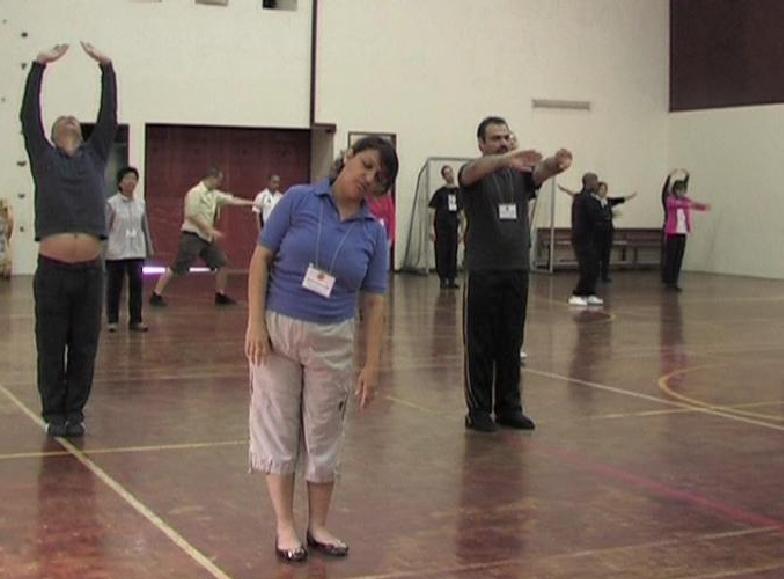DON'T THINK OF DOING IT; JUST DO IT

Chi kung class
Question
I try to take a long time to relax properly and in as calm an environment as I can, and I try (and mostly succeed) in releasing my thoughts, so I figure it is probably the breathing that I am doing something wrong with.
I continually check my relaxedness because otherwise I realize that after a while actually my legs or shoulders are tense, etc. because after relaxing at the start tenseness gradually creeps in.
-- Fawat, USA
Answer
These are examples where you added something to my simple instruction. Don't try to take a long time to relax, and don't try to take a short time to relax. Just relax.
Don't try to release your thoughts. Just don't think of anything.
Don't worry about your breathing. Just breathe.
Don't check your relaxedness or intellectualize on the tension in your legs or shoulders. Just relax without checking it. If you find that your legs or shoulders are tense, just relax them.
If you legs, shoulders or any parts of your body were tensed and you were not aware of it at the time but you become aware of it later, don't worry about it. It doesn't matter, just let it pass.
Many people complain that they cannot relax and cannot stop thinking of anything. Their problem is real, but their complaining and intellectualizing only make their problem worse.
Though it may not be easy, overcoming the problem is actually simple. You just do it. You just don't tense your muscles and don't think of anything. Doing the opposite is more complicated. Tensing your muscles and thinking of something need more effort and involve a lot of processes.
Let us take an analogy. Suppose you are standing in front of a cliff or a side of a busy street. If you are asked not to jump over the cliff or not to run carelessly across the street, you just do it. You just don't jump over the cliff or don't run cross the street. It is that simple. You don't have to worry about or intellectuaize on how to stop jumping or stop running.
LINKS
